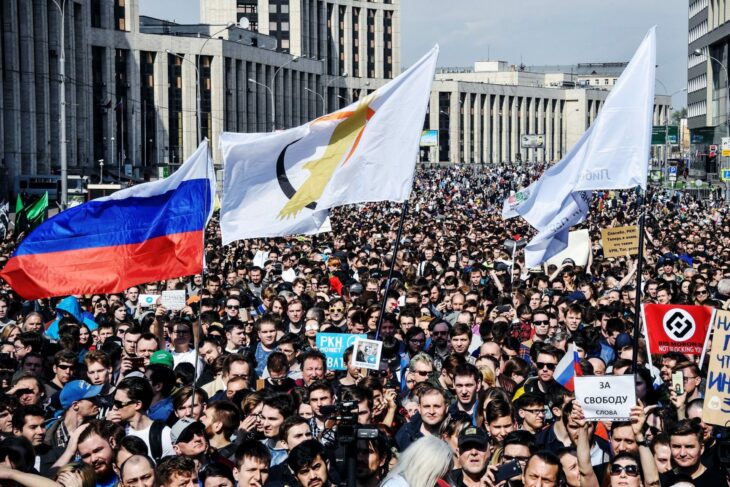Russia can't cut its internet off from the rest of the world yet. But a recent test foreshadowed more censorship and repression to come.

Over the holidays, the Russian government said it had completed a multi-day test of a national, internal internet known as RuNet, a bid to show that the country’s online infrastructure could survive even if disconnected from the rest of the world. Though Russia claims the initiative relates to cybersecurity, researchers and human rights advocates inside Russia and around the world argue that the test underscores Russia’s broader campaign to control and censor access to digital information within its borders.
Whether the Kremlin intends to fully cut Russia off from the global internet remains an open question. But through its support of purpose-built Russian services and its tech sector more generally, Russia has indisputably made significant steps toward going it alone. In early December, President Vladimir Putin signed a law that will take effect this summer requiring all computers, smartphones, and smart TVs sold in Russia to come pre-loaded with apps from Russian developers. The government is also investing 2 billion rubles—about $32 million—in a Russian Wikipedia alternative.
Those initiatives, together with increasingly isolationist infrastructure, points to a desire for markedly increased control. But analysts say that last week’s test may actually reflect a gradual approach rather than a rush to separate.
“There is not that much data available, but presenting the drills that happened in late December as a real-world exercise about disconnecting Russia from the global internet is probably exaggeration. There were no user reports confirming that,” says Leonid Evdokimov, a Russian security researcher at Censored Planet who formerly worked for the Tor Project and the Russian web services giant Yandex. “But the internet censorship and overall situation in Russia clearly has a chilling effect. So it seems there is no urgent need for the government to make an isolated internet right now. The current partial censorship and set of laws produce enough of a noticeable effect.”
Over the last decade, the Russian government has worked steadily to build out legal and infrastructure-level internet controls, establishing content filters and block lists and introducing oversight mechanisms within private telecoms. In October 2018, the Russian government cut mobile data service in the Ingushetia region during political protests—the first such internet outage in the country. Last August, the government initiated another internet blackout, this time during protests in Moscow. And in November, a new “sovereign internet” law also took effect, legalizing more radical isolation, including last week’s test.
Technical challenges have slowed Russia’s efforts, though. In the case of China, whose so-called Great Firewall gives the government near-absolute control over the internet, censorship and blocking infrastructure was built in from the start. In a country like Russia, where the internet grew mostly unchecked for decades, it’s tougher to retrofit mechanisms for control. Take Russia’s efforts in 2018 to ban the encrypted messaging app Telegram, which largely failed as Telegram and its users deployed anti-censorship techniques. Similarly, Russia’s efforts to crack down on VPNs have been very problematic, but still not comprehensive.
“I don’t think we’re going to see a large-scale shutdown in Russia or a large-scale block of big digital platforms. It isn’t strategically viable,” says Allie Funk, a research analyst at the pro-democracy group Freedom House, who works on an annual Freedom on the Net global assessment. “Russian users as a whole are extremely politically active and the government doesn’t really want to deter foreign tech companies. So it seems like what they’re trying to do is create an environment in which international or foreign platforms are more willing to comply with Russian laws.”
That isn’t to say the government couldn’t eventually develop comprehensive control, but it hasn’t yet demonstrated anything close to a full connectivity blackout or internet separation. In contrast, the Iranian government caused a total country-wide blackout in November that lasted multiple days. Iran is a much smaller and more geographically contained country than Russia, though.




